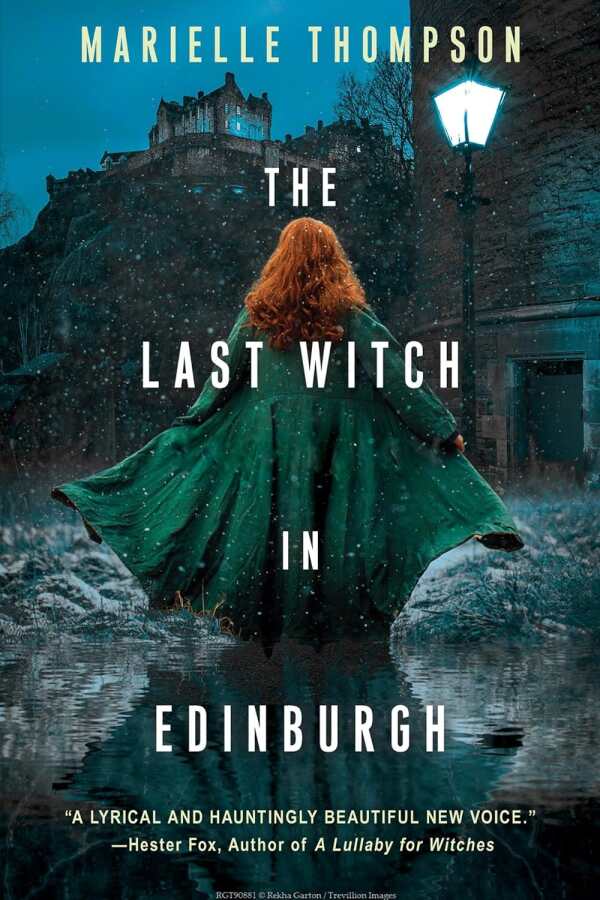The Last Witch in Edinburgh
In Marielle Thompson’s intimate and enlightened historical novel The Last Witch in Edinburgh, a women’s community entrenched in subtle spell-work and relationships faces misogyny and witch-hunting.
In the early 1800s, Nellie, the daughter of an alcoholic father, rues getting fired due to the attention that her beauty attracts. To avoid further poverty, she hopes to save her father from losing his post at the cemetery. She fears what will happen to her younger brother if she should be the next target of the patriarchy and fear that fuel the Scottish city’s morbid gatherings at Grassmarket. Even darker forces are also at work through Edinburgh’s ruthless commissioner, Angus.
Then, at the women-run apothecary, Nellie overhears Edinburgh’s witches talking about her deceased mother. As they reveal details of her past, the group, including a transgender woman, also nurtures Nellie’s artistic skills. She also meets her first love, Jean. Nellie is timid by nature, and Jean is her natural opposite; she tends to face evil, and may meet face-to-face with Angus.
Nellie’s life exceeds the expectations of the normal human timeline. Her relationship to Cailleach, the feminine energy, grows while she hides from Angus’s power and regrets running away from the horrors of old Edinburgh. But Nellie’s tendency to lose what she loves still haunts her as she returns to contemporary Edinburgh with her adopted daughter: “If loneliness walks beside you, nostalgia is a cat weaving through your ankles, tripping you with each reminder of its presence.” Nellie’s confessions of emotion and desire through time are poignant: she cannot change who she is or whom she loves.
The Last Witch in Edinburgh is an excellent, resonant historical novel in which an uncommon woman explores feminine energy and power in all its forms and orientations.
Reviewed by
Clarissa Adkins
Disclosure: This article is not an endorsement, but a review. The publisher of this book provided free copies of the book to have their book reviewed by a professional reviewer. No fee was paid by the publisher for this review. Foreword Reviews only recommends books that we love. Foreword Magazine, Inc. is disclosing this in accordance with the Federal Trade Commission’s 16 CFR, Part 255.

